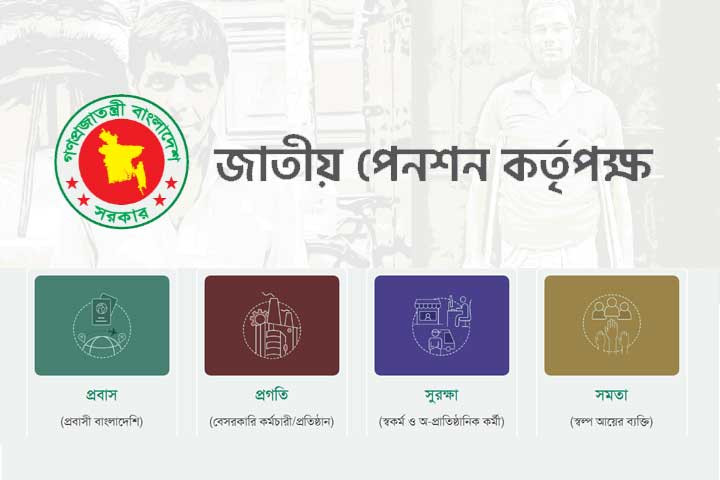Universal Pension Scheme losing steam amid waning public interest
Mousumi Islam, Dhaka
Published: 31 Jan 2025

The Universal Pension Scheme (UPS), launched in August 2023 with high hopes of providing financial security to Bangladesh’s ageing population, is facing dwindling public interest due to rigid regulations, lack of trust in the scheme and concerns over fund safety.
Economists and experts have urged the government to take steps to restore public confidence and ensure the scheme’s long-term sustainability.
Despite an initial surge in sign-ups, participation has significantly slowed. The UPS initially gained momentum with four sub-schemes – Pragati, Surokkha, Samata and Probash – attracting over 12,000 registrations in its first month.
By June 2024, the total registrations had surpassed 3.38 lakh, with the Samata scheme leading in participation.
However, growth has since stalled. By October 2024, registrations had only slightly increased to 3.72 lakh, and between October and January 2024, only 803 new members joined the scheme. Officials report that 20-30% of registered contributors have stopped making payments, raising concerns about the scheme’s viability.
By January 2024, the total deposits under UPS stood at Tk153.67 crore, but the number of active contributors continues to decline. Experts partially attribute this slowdown to the change in government in August 2024, which they claim resulted in reduced promotional efforts.
Public scepticism about the scheme’s long-term reliability is a major deterrent. Many fear that political instability could impact its sustainability, while others worry about the security of their contributions.
For private-sector employees like Rafiqul Islam and Sadikur Rahman, the biggest drawback is the lack of withdrawal options in emergencies – unlike bank fixed deposits or savings certificates, which offer liquidity.
Nazma Begum, a schoolteacher, prefers fixed deposits with 9-10% returns and immediate access. She finds the 12.5% profit on savings certificates more appealing than UPS, which lacks guaranteed returns.
Additionally, contributors to the Samata scheme, such as Akhlima Khatun, question whether the government truly matches 50% of their monthly contributions, as promised. This uncertainty has fuelled doubts about the scheme’s state-backed guarantees.
Md Golam Mostofa, a member of the National Pension Authority, acknowledged the decline in promotional efforts following the government transition and assured that all deposited funds are being securely invested in bonds.
To rebuild trust, the Universal Pension Authority plans to intensify awareness campaigns, including Teletalk voice messages, newspaper advertisements, pension awareness fairs in divisional cities after Ramadan, social media outreach (Facebook, YouTube, etc), and a dedicated stall at the Ekushey Book Fair.
Economists, including Zahid Hussain, former chief economist at the World Bank’s Dhaka office, have raised concerns about the scheme’s management and financial stability.
He warns that the government’s direct control over the pension scheme poses risks and suggests that an independent, autonomous institution should manage it to enhance transparency and trust.
“The scheme involves contributing money with the promise of returns at age 60. But what happens if the authority changes or the government cannot sustain payments?” Hussain questioned.
He emphasised that without addressing concerns over fund security and governance, the UPS will struggle to gain broader acceptance.
While the government remains committed to promoting the scheme, the steep drop in new registrations and payment defaults suggests an urgent need for policy revisions and structural changes. Whether the Universal Pension Scheme can regain public confidence and fulfil its promises remains uncertain.

